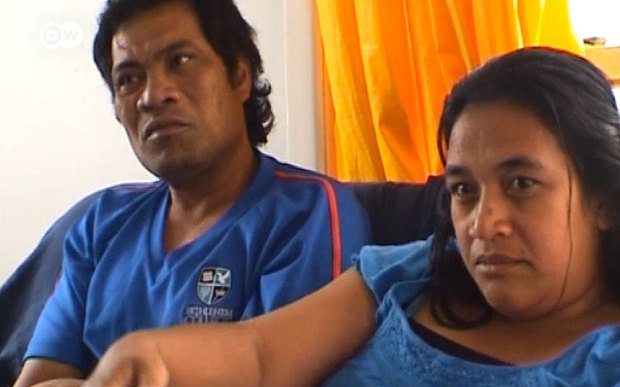Pacific islander loses bid to be world’s first ‘climate change refugee’
The Supreme Court acknowledged that Kiribati faced challenges but said Mr Teitiota was not at risk of persecution or serious harm and his nation was taking steps to protect its citizens from the environmental threat.
The decision affirmed previous rulings and left Mr Teitiota with no further avenues of appeal.
“While Kiribati undoubtedly faces challenges, Mr. Teitiota does not, if returned face ‘serious harm’,” the court said.
“There is no evidence that the government of Kiribati is failing to take steps to protect its citizens from the effects of environmental degradation, to the extent that it can.”
However, the court noted that its decision did not mean that “environmental degradation resulting from climate change or other natural disasters could never create a pathway into the Refugee Convention or protected person jurisdiction”.
Mr Teitiota moved to New Zealand with his wife in 2007 and had three children there but overstayed his visa and was caught in 2011 after being apprehended over an unrelated traffic matter.
He subsequently sought asylum as a climate refugee, saying rising sea levels had destroyed his crops and contaminated the water supply.
Kiribati, part of a former British colony, consists of about 33 small islands which are mostly only several feet above sea level.
Read More: Pacific islander loses bid to be world’s first ‘climate change refugee’ – Telegraph

